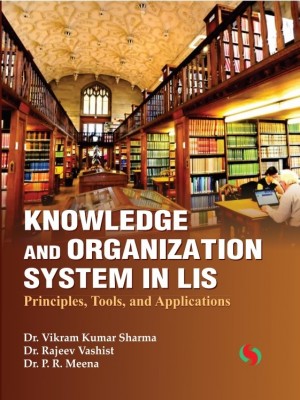
In the information-rich age, organizing knowledge efficiently is no longer a luxury—it’s a necessity. Knowledge and Organization System in LIS: Principles, Tools, and Applications is a comprehensive and forward-thinking guide that delves into the foundational principles, evolving methodologies, and transformative technologies behind how knowledge is structured, accessed, and utilized in Library and Information Science (LIS). Divided into five thematic sections, this book begins by exploring the core foundations of Knowledge Organization (KO)—from classical theories to modern computer and semantic models. It introduces readers to the vital roles of taxonomies, ontologies, and knowledge organization systems (KOS), offering a nuanced understanding of how information frameworks are developed and maintained. The journey continues with an in-depth look at classification and cataloging systems, including traditional schemes such as DDC, LCC, and UDC, as well as subject headings and metadata standards like MARC, Dublin Core, and RDA. These chapters equip readers with practical skills and conceptual clarity essential for effective information description and retrieval. Moving into the digital realm, the book examines emerging digital KO systems, indexing techniques, and semantic search technologies, emphasizing the transformative impact of AI, machine learning, and linked data on contemporary knowledge structures. Readers are then introduced to the Semantic Web, knowledge graphs, and open data practices, before venturing into the future of KO, including open access, ethical considerations, and cutting-edge innovations such as virtual and augmented reality in knowledge systems. With real-world relevance and academic rigor, this book serves as an essential reference for LIS students, educators, information professionals, and researchers. It not only provides the tools and terminology for mastering KO systems but also inspires critical thinking about the future of organizing knowledge in a digitally connected world. Unlock the frameworks that make information discoverable, usable, and meaningful—because the future of libraries begins with how we organize knowledge today.
1995.00
@copyrights all reserved The Readers Paradise Design By www.cypwebtech.com